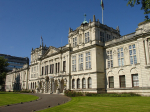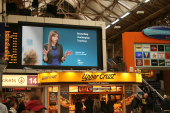
Culture
-
 Climbing Churchill statue to become a criminal offence
The UK government is set to make it a criminal offence to climb the statue of Winston Churchill in Parliament Square, with offenders facing up to three months in prison and a £1,000 fine.Read More...
Climbing Churchill statue to become a criminal offence
The UK government is set to make it a criminal offence to climb the statue of Winston Churchill in Parliament Square, with offenders facing up to three months in prison and a £1,000 fine.Read More... -
 Harrogate’s cherry blossoms rival Japan’s sakura season
While Japan’s iconic cherry blossom season draws millions each year, a town in North Yorkshire is proving you don’t need to fly 6,000 miles to experience the magic.Read More...
Harrogate’s cherry blossoms rival Japan’s sakura season
While Japan’s iconic cherry blossom season draws millions each year, a town in North Yorkshire is proving you don’t need to fly 6,000 miles to experience the magic.Read More... -
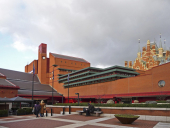 British Library set for £1.1 billion expansion
The British Library, the largest in the UK, is set for a major transformation with a £1.1 billion expansion project now approved.Read More...
British Library set for £1.1 billion expansion
The British Library, the largest in the UK, is set for a major transformation with a £1.1 billion expansion project now approved.Read More... -
 Export bars placed on two 18th century Agostino Brunias paintings
Two paintings by the 18th-century Italian artist Agostino Brunias, both depicting scenes from the Caribbean island of St Vincent, have been placed under temporary export bars to give UKRead More...
Export bars placed on two 18th century Agostino Brunias paintings
Two paintings by the 18th-century Italian artist Agostino Brunias, both depicting scenes from the Caribbean island of St Vincent, have been placed under temporary export bars to give UKRead More... -
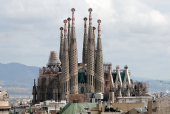 Pope recognizes Antoni Gaudí's "heroic virtues," puts him on path to sainthood
The Vatican has taken a significant step toward making renowned Spanish architect Antoni Gaudí a saint, officially recognizing his "heroic virtues." Often referred to as "God's architect,"Read More...
Pope recognizes Antoni Gaudí's "heroic virtues," puts him on path to sainthood
The Vatican has taken a significant step toward making renowned Spanish architect Antoni Gaudí a saint, officially recognizing his "heroic virtues." Often referred to as "God's architect,"Read More... -
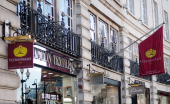 Britain’s oldest Indian restaurant faces closure amid Central London lease dispute
Veeraswamy, the UK's oldest Indian restaurant, is facing the threat of closure just before reaching its centenary, due to a lease disagreement with the Crown Estate.Read More...
Britain’s oldest Indian restaurant faces closure amid Central London lease dispute
Veeraswamy, the UK's oldest Indian restaurant, is facing the threat of closure just before reaching its centenary, due to a lease disagreement with the Crown Estate.Read More... -
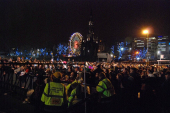 Communities invited to nominate beloved UK traditions for National Heritage List
This summer, communities across the UK will be able to nominate their favourite traditions—from iconic celebrations like Notting Hill Carnival and Hogmanay to time-honoured crafts likeRead More...
Communities invited to nominate beloved UK traditions for National Heritage List
This summer, communities across the UK will be able to nominate their favourite traditions—from iconic celebrations like Notting Hill Carnival and Hogmanay to time-honoured crafts likeRead More... -
 £20m museum renewal fund opens for England’s civic museums
Civic museums across England can now apply for a share of the new £20 million Museum Renewal Fund, aimed at boosting access to collections, enhancing educational programmes, andRead More...
£20m museum renewal fund opens for England’s civic museums
Civic museums across England can now apply for a share of the new £20 million Museum Renewal Fund, aimed at boosting access to collections, enhancing educational programmes, andRead More... -
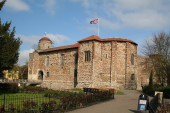 The underrated UK city that was England’s first capital — 1,000 years before London
Tucked away in Essex lies a city that predates London as England's capital by over a millennium. Rich in Roman and medieval history, Colchester only officially became a city in 2022 as part ofRead More...
The underrated UK city that was England’s first capital — 1,000 years before London
Tucked away in Essex lies a city that predates London as England's capital by over a millennium. Rich in Roman and medieval history, Colchester only officially became a city in 2022 as part ofRead More... -
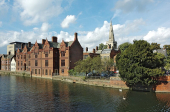 Universal Studios to open first UK theme park in Bedford by 2031, creating 28,000 jobs
The UK is officially getting its first Universal Studios theme park, with a grand opening set for 2031. The landmark project, backed by the UK government, is expected to bring in a staggeringRead More...
Universal Studios to open first UK theme park in Bedford by 2031, creating 28,000 jobs
The UK is officially getting its first Universal Studios theme park, with a grand opening set for 2031. The landmark project, backed by the UK government, is expected to bring in a staggeringRead More... -
 MI5 lifts the veil on 115 years of secrets in new exhibition
For the first time in its 115-year history, MI5 is pulling back the curtain on its shadowy past. A new exhibition at the National Archives in London, MI5: Official Secrets, offers the public anRead More...
MI5 lifts the veil on 115 years of secrets in new exhibition
For the first time in its 115-year history, MI5 is pulling back the curtain on its shadowy past. A new exhibition at the National Archives in London, MI5: Official Secrets, offers the public anRead More...

British Queen celebrates
Most Read
- Teen held after US woman killed in London stabbings
- Heave-ho Harry! Prince prepares to join the walking wounded in ice trek to North Pole
- Football: Farhad Moshiri adamant Everton deal above board
- "Master of English Style". Interview with Designer Lydia Dart
- Letter to the Financial Times from Lord Mayor Alderman Michael Bear
UK news
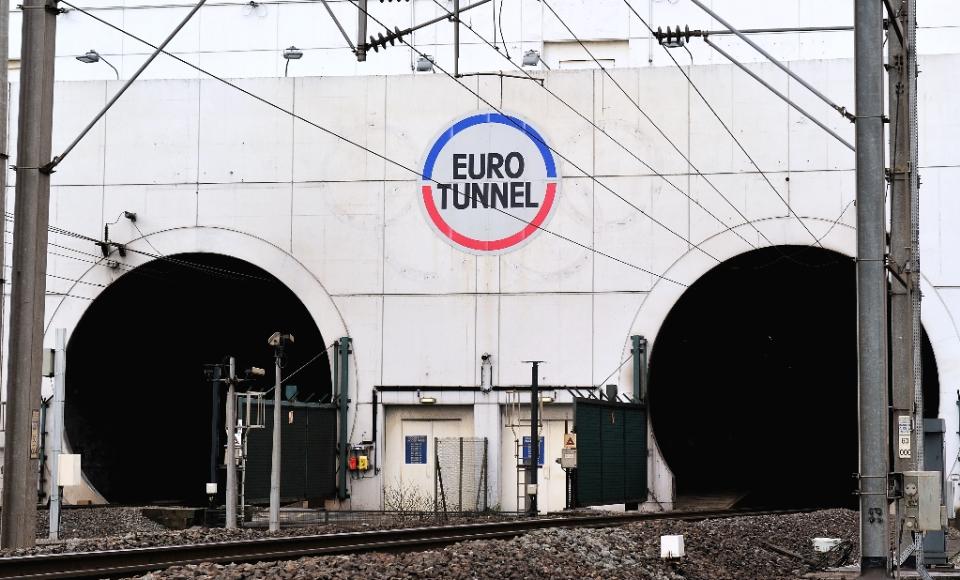
The company which operates the Channel Tunnel said on Tuesday Britain's decision to grant asylum to a Sudanese man who walked the passage between France and England was "unfortunate".
Abdul Rahman Haroun, 40, was granted asylum on December 24, after being arrested on suspicion of walking through the 31-mile (50 kilometre) tunnel in August.
"It is unfortunate because it can give bad ideas to certain migrants and encourage them to risk their lives," a spokesman for Eurotunnel told AFP.
The Channel operator has struggled for months with migrants storming their premises to get into the tunnel and attempt to make their way to Britain.
Stepped-up security has significantly slowed the attempts to get through, but in mid-December between 800 and 1,000 migrants made a desperate bid to storm the tunnel, resulting in clashes with security forces.
Local government estimates up to 4,500 people fleeing war and poverty in Asia, the Middle East and Africa are living in notoriously squalid conditions in a makeshift camp in Calais known as the "Jungle".

Twitter's 140 character limit on tweets has long frustrated and challenged its most verbose users.
Now the company could offer a solution, according to tech news website re/code: the 10,000 character tweet, which could be available as soon as March.
Re/code reported Tuesday that Twitter has been studying how to allow users to say more, after restricting them to 140 characters for 10 years.
That limit was based on the capacity of the original messaging software used, and though frustrating for many, unleashed a tidal wave of ultra-concise commentary across the web.
Now more than 300 million regular Twitter users send hundreds of millions of messages every day -- news reports, personal updates, advertisements, political pitches, photos and videos and, most often, just witty and innocuous comments.
Re/code says the company already allows 10,000 characters in a commercial product called Direct Messages, so the technology is no longer a barrier.
The company is testing a version that would still only display 140 characters in a message, but carry much more, and a reader would have to click on the tweet to see the rest.
The move is a part of Twitter's efforts to expand its user base and advertising sales and other sources of income.
Twitter continued to lose money over the first three quarters of last year. In October it reported a third quarter loss of $132 million, on a disappointing 11 percent year-on-year increase in regular users to 320 million.
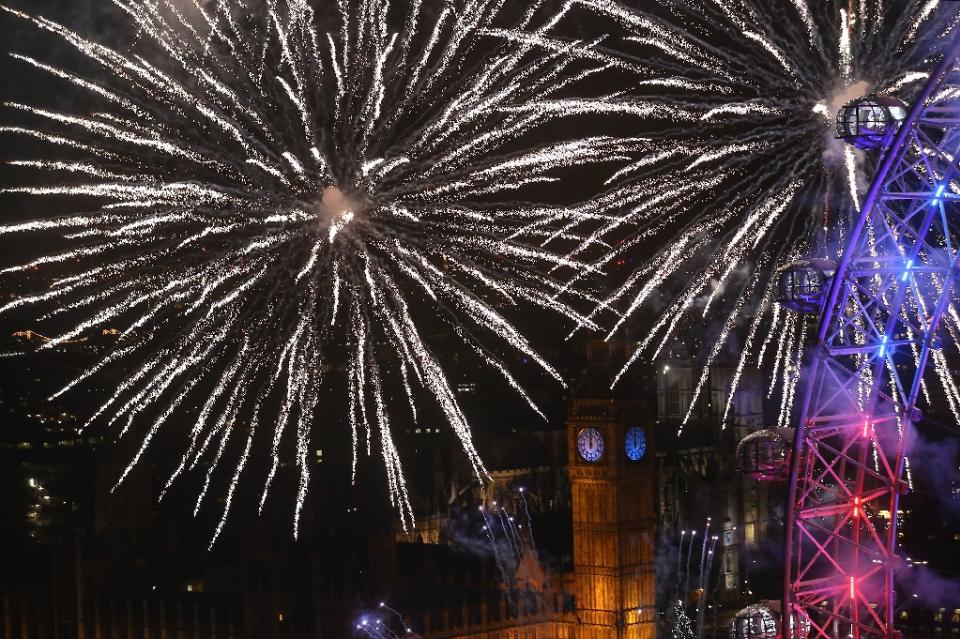
Britain welcomed in 2016 on Friday with giant fireworks shows in London and Edinburgh as hundreds of thousands of revellers hit the streets to see in the New Year.
Some 12,000 fireworks filled the clear night sky in London, watched by 113,000 ticket-holders lining the banks of the River Thames and thousands of others craning for a view from vantage points around the city.
As Big Ben in the Houses of Parliament's clock tower chimed in the New Year, fireworks exploded around the London Eye ferris wheel on the opposite side of the River Thames.
That kicked off an 11-minute salvo set to music from the likes of David Bowie and Lenny Kravitz.
The smoke from the fireworks drifted downstream, engulfing landmarks like Tower Bridge, Saint Paul's Cathedral, and The Shard, Western Europe's tallest tower.
Boats on the river honked their horns and smaller, back garden fireworks parties could be seen all across the city.
On the main BBC television channel, the fireworks show was bracketed by a live concert from Canadian rocker Bryan Adams, watched by millions at home.
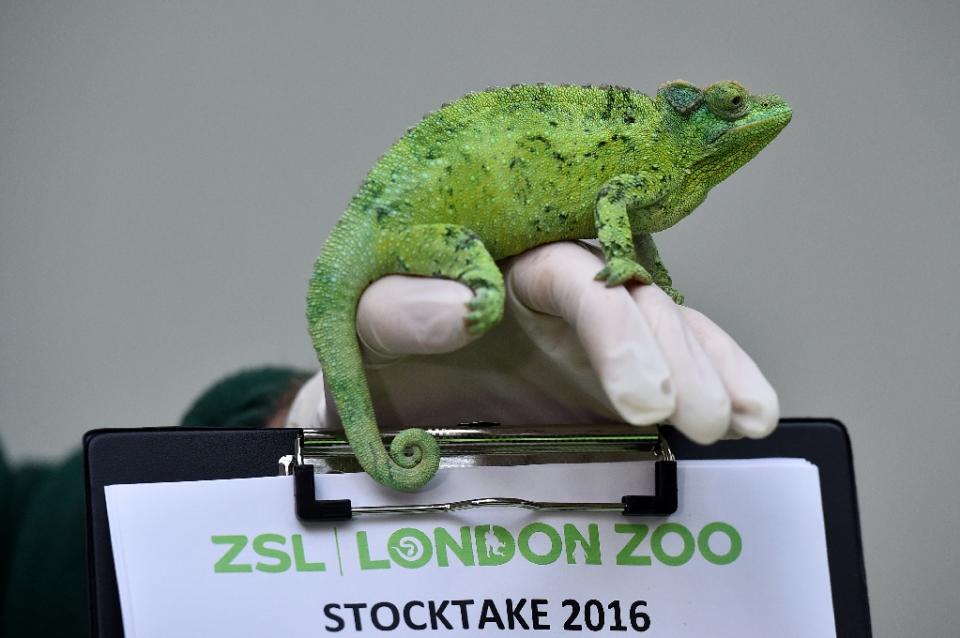
Zookeepers armed with clipboards, calculators and cameras fanned out across London Zoo on Monday to start its annual animal stocktake.
The keepers face the daunting task of totting up every mammal, bird, reptile, fish and invertebrate -- around 17,000 creatures across 750 different species -- during the week-long count.
Last year saw the arrival of many new animals at the central London zoo, from the world's first zoo-bred Lake Oku clawed frogs to a litter of 11 endangered African hunting dogs.

As much of northern Britain braced itself for further flooding on Wednesday, the chief of the country's Environment Agency came under fire after it emerged he had spent the last two weeks in Barbados.
Philip Dilley, 60, was set to meet with flood victims on Wednesday shortly after returning to Britain, saying that he had arrived "at the appropriate time".
The agency and the government have been criticised after thousands were forced to leave their homes during an unusually wet December, with officials blamed for failing to build adequate flood defences.
The agency has been also accused of misleading the public after releasing a statement saying that Dilley, a former business adviser to Prime Minister David Cameron, was "at home with his family" during floods that hit a day after Christmas.
A tanned Dilley spoke to reporters as he arrived at his London flat on Wednesday, saying he would be "very happy to speak" with those affected.
Former engineer Dilley defended the agency's response, saying "we've been very effective and efficient in what we've been doing."
"Everybody can't be everywhere at the same time," he said of his whereabouts during the most recent wave of flooding, which struck northern England over the Christmas holidays.

A husband and his ex-wife convicted of planning a major attack to mark the 10th anniversary of the London suicide bombings were both sentenced to life in prison on Wednesday.
Mohammed Rehman, 25, who used the Twitter name "Silent Bomber" and asked users whether he should bomb a shopping centre or the London Underground train network, will serve a minimum of 27 years.
Judge Jeremy Baker ruled that Sana Ahmed Khan, 24, who was Rehman's wife at the time of the crime but who revealed during the trial that the pair had divorced, must serve a minimum of 25 years after being found guilty on Tuesday.
On sentencing, Baker said the intended act "specifically included a suicide bombing; an act which envisaged martyrdom, a notion specifically resurrected by Islamic State in order to encourage this type of venture."
Rehman was arrested in May after posting a tweet saying: "Westfield shopping centre or London underground? Any advice would be greatly appreciated."
The tweet linked to an Al-Qaeda statement about the July 2005 bombings in which four suicide bombers targeted London's transport system, killing 52 people.
The couple were accused of planning their attack for around May 28.
Police seized more than 10 kilogrammes (22 pounds) of urea nitrate, which can be used to manufacture a large bomb, from Rehman's house.
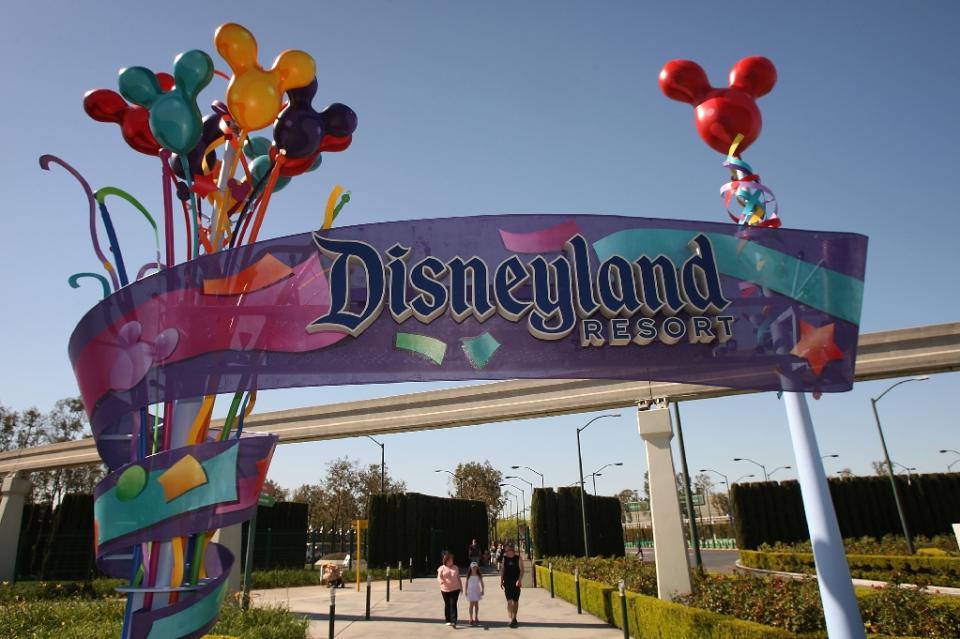
Prime Minister David Cameron was urged to intervene Wednesday after a British Muslim family was prevented from flying to the United States for a visit to Disneyland.
The family of 11 was stopped from boarding their flight to Los Angeles at London's Gatwick airport on Tuesday last week by immigration officials.
Mohammad Tariq Mahmood, who was travelling with his brother and nine of their children, said the officials gave no reason for blocking their travel plans.
But he told the Guardian newspaper he believed it was because US officials "think every Muslim poses a threat".
"Because I have a beard and sometimes wear Islamic dress, I get stopped and asked questions," Mahmood added in comments to the BBC. "I feel that is part of the deal of flying."

Anglican leader Justin Welby on Friday said Christians faced "elimination" in the Middle East by Islamic State (IS) jihadists, labelling the group a modern-day version of the tyrannical biblical king Herod.
IS has attacked Christians, Yazidis, Shiites and other minorities across the region, killing thousands and uprooting ancient communities from ancestral lands.
"They hate difference, whether it is Muslims who think differently, Yazidis or Christians, and because of them the Christians face elimination in the very region in which Christian faith began," the archbishop of Canterbury said in his Christmas Day sermon.
Apple has warned that a British plan to give intelligence agencies extra online surveillance powers could weaken the security of personal data for millions of people and paralyse the tech sector.
Britain unveiled proposals for new online powers last month that it said were needed to keep the country safe from criminals, fraudsters and militants, including the right to find out which websites people visit.
Critics however say the Investigatory Powers Bill gives British spies authority beyond those available in other Western countries, including the United States, and that it constitutes an assault on personal freedom.
"We believe it is wrong to weaken security for hundreds of millions of law-abiding customers so that it will also be weaker for the very few who pose a threat," the iPhone maker said.
Apple submitted its response to a British parliamentary committee that is scrutinising the new bill in the latest clash between Western governments seeking to monitor the threat from Islamist militants and online companies working to maintain security.
Apple said the draft laws could weaken data encryption, sanction interference with its products, force non-UK companies to break the laws of their home countries, and spark similar legislation in other countries that could paralyse firms under the weight of dozens of contradictory laws.
Lending support to Apple's view, Microsoft also said an international approach would keep people more secure than competing measures from different countries.
"The legislation must avoid conflicts with the laws of other nations and contribute to a system where likeminded governments work together, not in competition, to keep people more secure," a spokeswoman said.











